DAO Voting System Selector
Select your DAO's characteristics to determine which voting system best matches your needs.
Select your parameters to see the best voting system for your DAO
How Governance Tokens Turn Token Holders Into Decision-Makers
Imagine a company where no CEO makes the final call. No board votes behind closed doors. Instead, every person who holds a piece of the company’s digital token gets to vote on major decisions-like how money is spent, what features get built, or even who gets paid. This isn’t science fiction. It’s how DAOs (Decentralized Autonomous Organizations) operate today, and it all hinges on governance tokens and the voting systems that power them.
These tokens aren’t just for trading or speculation. They’re keys to influence. Holders use them to vote on proposals that change the rules of the protocol itself. But not all voting systems are built the same. Some favor the rich. Others try to give everyone a fair shot. And some are so slow they can’t respond to emergencies. Understanding how these systems work isn’t just for developers-it’s critical for anyone holding governance tokens, whether you’re a small investor or part of a large DAO.
Token-Based Voting: Simple, But Skewed
The most common system is straightforward: one token, one vote. If you hold 1,000 UNI tokens on Uniswap, you get 1,000 votes. If you hold 10 million, you get 10 million votes. It’s simple to code, easy to understand, and cheap to execute on-chain.
But here’s the problem: it creates plutocracy. According to TokenTerminal’s Q1 2024 report, the top 10 wallet addresses control 48.7% of Uniswap’s voting power. That means less than 0.1% of token holders can outvote the other 99.9%. In May 2023, a single proposal (#132) was passed by wallets representing just 0.02% of total token holders. That’s not democracy. It’s a silent auction where the biggest wallets bid on control.
Compound, Aave, and MakerDAO all use this model. It works fine when the community is large and distributed. But when whales show up with flash loans-borrowing millions of tokens for a few hours to swing a vote-it breaks down. The Beanstalk Farms attack in April 2022, where an attacker used a flash loan to seize 67% of voting power and steal $182 million, exposed how dangerous this simplicity can be.
Quadratic Voting: Giving Power Back to the Many
What if voting power didn’t scale linearly with token holdings? That’s the idea behind quadratic voting. Instead of one token = one vote, you pay a cost that increases with the square of your votes. To cast 2 votes, you need 4 tokens. For 3 votes, you need 9. For 10 votes, you need 100 tokens.
This system, pioneered by Gitcoin for funding public goods, makes it expensive for whales to dominate. A holder with 10,000 tokens can’t just buy 10,000 votes-they’d need 100 million tokens to do it. That’s often more than exists in circulation. It encourages smaller holders to pool their votes and vote on what matters to them, not just what the biggest wallets want.
But it’s not perfect. Gas costs spike. A standard vote on Ethereum costs around 21,000 gas units. A quadratic vote with 10 votes? Around 10,000 gas. Sounds better? Not when you’re voting on a $50 proposal and the gas fee is $3.50. And setting it up requires complex smart contracts. Only a handful of DAOs, like Colony and Gitcoin, use it seriously. Still, Vitalik Buterin calls it the most promising path to avoid plutocracy-especially if paired with proof-of-personhood systems to ensure real humans, not bots, are voting.
Conviction Voting: Patience Over Speed
Conviction voting flips the script. Instead of voting once and moving on, your vote gains weight over time. If you support a proposal for 1 day, your vote counts as 1. For 7 days, it counts as 7. For 30 days, it counts as 30. The longer you stick with a position, the more power you have.
This rewards commitment and discourages short-term speculation. DAOs using this model, like Aragon-based projects, see more thoughtful decisions. MIT’s 2023 study found that DAOs using conviction voting had 31% better long-term strategic alignment than those using token-based voting.
But here’s the catch: it’s too slow for emergencies. In March 2023, Curve Finance had to fix a critical vulnerability. The proposal took 72 hours to pass because conviction voting requires time to build momentum. In crypto, 72 hours can mean millions lost. When speed matters, conviction voting can be a liability.
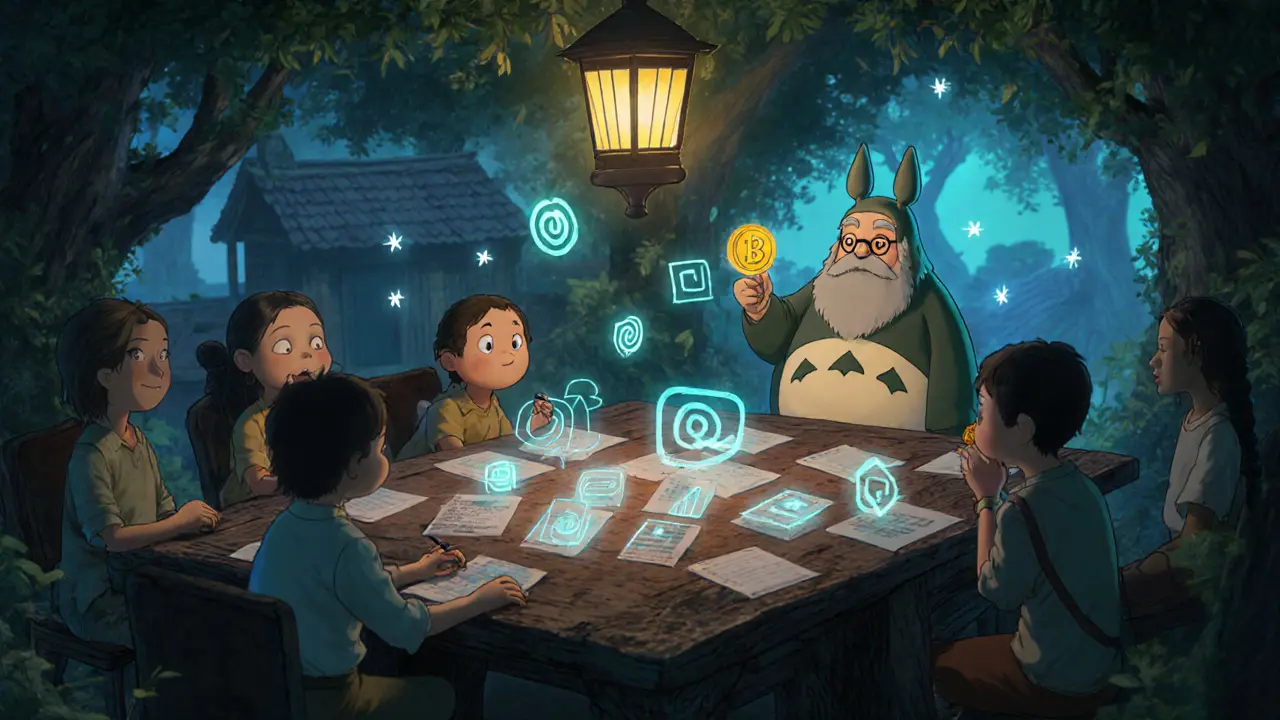
Holographic Voting: Betting on Proposals Before You Vote
Holographic voting, used by DAOstack, adds a prediction market layer. Before you vote, you must stake tokens to signal whether you think a proposal is worth voting on. If enough people stake (say, $500 worth of ANT tokens), the proposal enters the voting phase. If not, it dies before it even gets a vote.
This filters out low-quality or spammy proposals. It’s like a community jury deciding which ideas deserve attention. It prevents DAOs from being flooded with garbage proposals-something that plagues many token-based systems.
But it creates a new barrier: money. If you don’t have $500 to stake, you can’t even get your proposal seen. And if you’re a small holder, you’re locked out unless you trust others to stake on your behalf. It’s effective, but it’s not inclusive.
Liquid Voting: Delegation as a Workaround
Liquid voting-also called delegated voting-lets you assign your vote to someone else. If you don’t have time to research a proposal, you can delegate your tokens to a trusted expert. You can change your delegate anytime. If you change your mind, you vote directly.
This is the system Lido DAO uses. And it works. Krayon Digital found that liquid voting boosted participation by 37%. In Aave’s governance forum, users reported 22% participation on key proposals-far above the industry average of 3-8%.
But there’s a risk: centralization. In Q4 2023, just three delegates controlled 62% of Lido’s voting power. If one of them gets hacked, or decides to act selfishly, the whole system is compromised. Liquid voting turns a decentralized system into a representative one-and representatives can become power centers.
Multisig Voting: Security Over Speed
Smaller DAOs, like Friends With Benefits, often skip token-based voting entirely. Instead, they use multisig wallets. A proposal needs approval from 3 out of 5 trusted members. No tokens needed. Just signatures.
This is the most secure method. No flash loans. No whale manipulation. No automated exploits. It’s human-controlled, slow, and deliberate.
But it’s also the least decentralized. You’re trusting a small group of people-often founders or early contributors-to make decisions. Approval times average 72 hours. Compare that to token-based voting, which can execute in 15 minutes. Multisig works for small, tightly-knit groups. It fails for large, open communities.

Why Most People Don’t Vote (And Why It Matters)
Here’s the ugly truth: 73% of governance token holders never vote. DeepDAO’s 2024 study found the median participation rate across 127 DAOs was just 4.7%. Yet most DAOs require 20-40% quorum to pass a vote. That means a tiny fraction of the community controls the outcome.
Why? Three reasons:
- Gas fees-$1.50 to $5 per vote adds up fast.
- Whale dominance-why vote if your 100 tokens won’t matter against a whale’s 10 million?
- Complexity-most proposals are written in dense technical jargon. No explanations. No videos. No summaries.
DAOs that fix this see results. Aave and Uniswap now provide video explainers and live AMAs. Those with clear education saw 38% higher participation. Simple changes-like a 2-minute video-can turn apathy into engagement.
What’s Changing in 2025?
The worst systems are being phased out. Uniswap’s proposed Governance v3 (announced July 2024) combines token voting with a council of elected delegates. It’s a hybrid-giving weight to both token holders and trusted experts.
Off-chain voting is booming. Snapshot, a tool that lets you vote without paying gas, is now used by 80% of major DAOs. Votes are counted off-chain, then executed on-chain only if they pass. This cuts gas costs by 92%.
Privacy is arriving too. Aztec Network’s zero-knowledge voting system lets you vote without revealing your wallet or token balance. It’s still new, but it could stop whales from targeting small holders.
And AI is stepping in. GovAI, launched in early 2025, scans proposals and flags risks with 92% accuracy. It tells you if a proposal has a reentrancy bug, a bad incentive structure, or a hidden conflict of interest. No more guessing.
What You Should Do If You Hold Governance Tokens
If you hold governance tokens, you’re not just an investor-you’re a stakeholder. Here’s what to do:
- Check how the DAO votes-Is it token-based? Liquid? Quadratic? Know the rules before you buy.
- Don’t ignore proposals-Even if you think your vote doesn’t matter, others might. Low turnout means a few people decide for everyone.
- Use off-chain tools-Vote on Snapshot. Read summaries. Watch videos. Skip the gas until you’re sure.
- Delegate if you’re unsure-Find someone whose judgment you trust. But check who they delegate to.
- Push for better education-If a DAO’s proposal page is unreadable, say so. Demand clear explanations.
Governance isn’t broken. It’s just early. The first wave of DAOs used simple models because they had to. Now, we’re seeing smarter systems emerge. The goal isn’t perfect democracy-it’s functional, secure, and fair decision-making. And that’s something every token holder should care about.
What is a governance token?
A governance token is a digital asset that gives its holder the right to vote on decisions affecting a decentralized organization, like a DAO. These tokens are typically issued by blockchain protocols to distribute control among users instead of centralized teams. Examples include UNI (Uniswap), COMP (Compound), and AAVE (Aave). Voting power is usually tied to the number of tokens held, though some systems use more complex models.
Can I vote without owning tokens?
No, you cannot vote on-chain without holding the governance token. Some DAOs allow off-chain voting through tools like Snapshot, but even those usually require you to hold a minimum amount of tokens to participate. If you don’t own any tokens, you have no formal voice in the decision-making process.
Why do gas fees make voting a problem?
On Ethereum, every vote is a transaction that requires gas fees-typically $1.50 to $5 per vote. For small holders, this cost can be higher than the value of the proposal itself. If a proposal affects a $100 treasury allocation but costs $4 to vote, it’s not worth it. This discourages participation and gives an advantage to those who can afford to pay repeatedly.
What’s the difference between on-chain and off-chain voting?
On-chain voting happens directly on the blockchain and requires gas fees. Votes are permanent, verifiable, and automatically executed. Off-chain voting, like on Snapshot, happens off the blockchain using signatures. It’s free and faster, but the results must still be confirmed on-chain to take effect. Most DAOs now use off-chain voting for polling and on-chain for final execution.
Are governance tokens considered securities?
Regulators are still deciding. The U.S. SEC sued Uniswap Labs in February 2024, arguing that UNI tokens are unregistered securities because they give holders voting rights and financial influence over a commercial enterprise. This legal uncertainty has slowed new governance token launches. If courts rule that governance tokens are securities, DAOs may need to register them or change their structures to avoid regulation.
How can I avoid being outvoted by whales?
You can’t fully prevent it if the system is token-weighted. But you can reduce its impact: join liquid voting systems and delegate to trusted members; support DAOs using quadratic or conviction voting; and participate in off-chain discussions to build coalitions. The goal isn’t to match whales-it’s to align with others who share your values and amplify your voice collectively.
What happens if a proposal passes but I disagree?
If the proposal passes and meets quorum, it executes automatically. There’s no undo button. That’s why research and participation matter. If you disagree, you can leave the protocol, sell your tokens, or try to propose a reversal later. But in decentralized systems, majority rules-even if you think the majority is wrong.
Do governance tokens have any value outside of voting?
Sometimes. Some tokens offer fee discounts, staking rewards, or access to exclusive features. But their primary value is governance power. If no one votes, the token’s utility drops. A governance token without active participation is like a voting card no one uses-it looks valuable, but it doesn’t do anything.

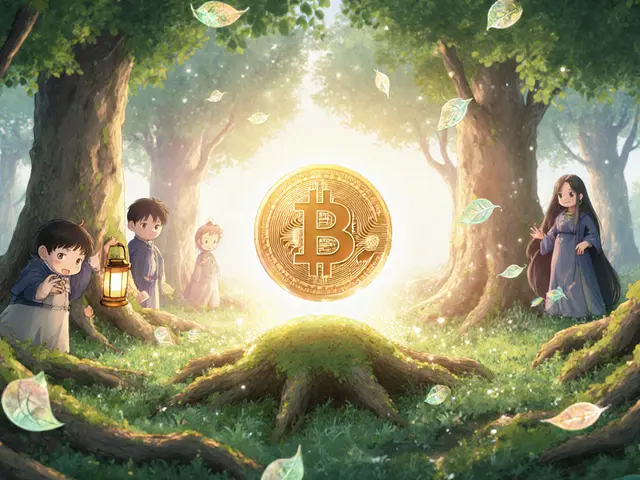
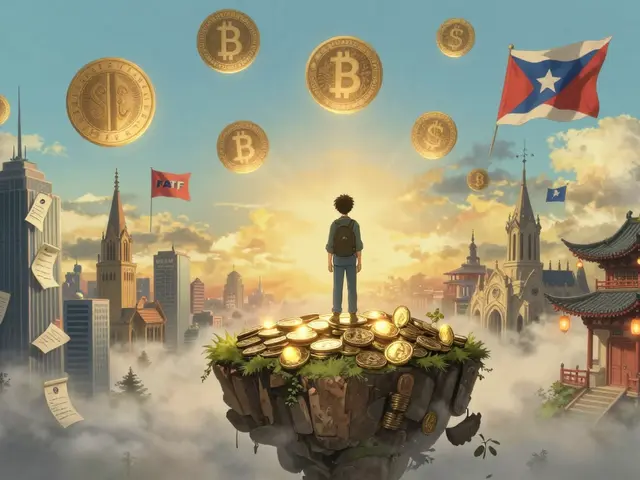
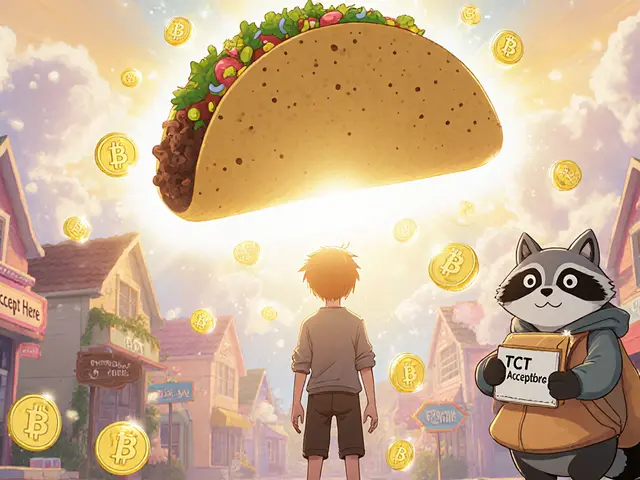
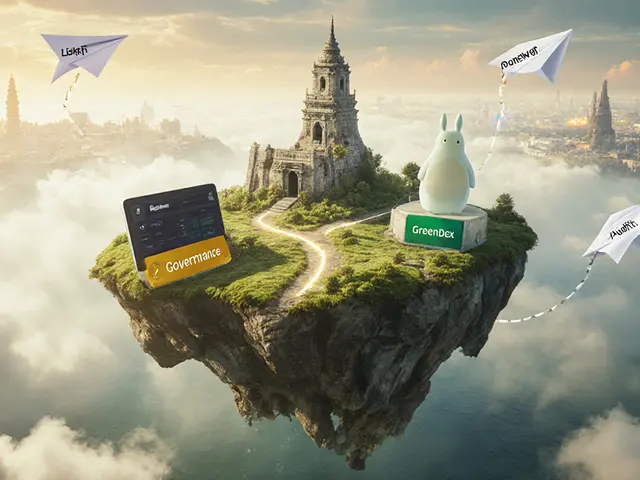
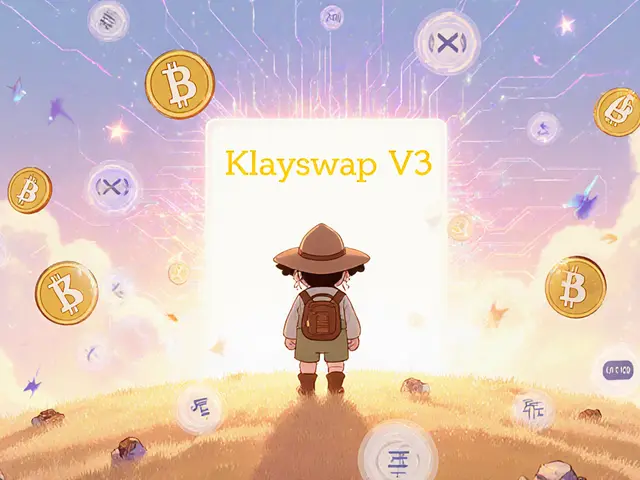
Leo Lanham
November 7, 2025 AT 18:39 PMThis whole thing is just rich people playing pretend democracy. One token one vote? More like one whale one vote. They don't care about you or me. They just want to move the money where it's easiest to steal.
Robert Bailey
November 9, 2025 AT 00:08 AMHonestly I just vote when it's on Snapshot. No gas, no stress. Even if my vote doesn't matter, at least I'm not letting the whales win by default.
karan thakur
November 10, 2025 AT 05:34 AMThis is all a setup. The SEC is already watching. They're waiting for the first big DAO to fail so they can shut it all down and say 'I told you so'. Governance tokens are just the Trojan horse for Wall Street to take over crypto.
Angie McRoberts
November 10, 2025 AT 22:54 PMThe fact that people still think voting matters in a system where 0.02% of wallets pass proposals... honestly? I'm impressed by how good we are at pretending we have agency.
Stephanie Tolson
November 12, 2025 AT 12:27 PMIf you're holding governance tokens and not reading the proposals, you're not an investor-you're a spectator. And spectators get left behind when the game changes. Take 5 minutes. Watch the explainer video. It's not hard.
Brian Webb
November 13, 2025 AT 08:43 AMI used to think quadratic voting was the answer, but then I realized most people don't even understand what 'quadratic' means. You can build the perfect system, but if the users can't navigate it, it's just another fancy contract sitting on Ethereum. Simplicity wins. Always.
Wendy Pickard
November 15, 2025 AT 01:57 AMI delegate to someone I trust. Not because I'm lazy, but because I respect their research. And I change delegates if they start voting weird. It's like having a financial advisor, but you can fire them anytime.
Jacque Hustead
November 15, 2025 AT 19:45 PMI really appreciate how some DAOs now include plain language summaries. It's a small thing, but it makes me feel like I'm not being talked down to. We're all trying to figure this out. A little kindness goes a long way.
Natalie Nanee
November 16, 2025 AT 12:56 PMWhy do people keep pretending this is about fairness? It's not. It's about control. The people who built this system already won. Everything else is theater.
Colin Byrne
November 17, 2025 AT 16:20 PMThe entire premise of decentralized governance is fundamentally flawed. Human beings are not rational actors. We are emotional, biased, and easily manipulated. To assume that aggregating votes based on token holdings-regardless of the mechanism-will produce optimal outcomes is to misunderstand the nature of power, incentive, and group dynamics. The idea that quadratic voting or conviction voting can overcome these innate tendencies is not just naive-it is dangerously optimistic. The only viable model is one that acknowledges human fallibility and builds in layers of oversight, not more voting. The real innovation isn't in the algorithm-it's in the human governance layer that exists outside the blockchain entirely.
Vipul dhingra
November 18, 2025 AT 19:44 PMYou all talk about whales like they're villains but the real problem is you. You think you're entitled to a voice when you hold 10 tokens? Wake up. The market rewards those who commit. If you don't have skin in the game then shut up and stop complaining about the game
Chris Hollis
November 19, 2025 AT 09:54 AMGas fees are a joke. But the bigger joke is how DAOs act like they're revolutionary when they're just using the same old centralized power structures under a different name. Multisig? That's a board of directors with crypto wallets. Liquid voting? That's proxy representation. Nothing's decentralized. It's just rebranded.
Whitney Fleras
November 19, 2025 AT 16:32 PMI just want to say thank you to the people who write clear proposal summaries. I know it's extra work, but it makes all the difference. I'm not a dev. I'm just someone trying to do the right thing. You're helping me be part of this.
Chloe Walsh
November 19, 2025 AT 23:42 PMI used to think DAOs were the future then I realized they're just the past with better marketing. The same power grabs. The same elites. The same silence from everyone else. We're not building a new world. We're just repainting the old one in blockchain colors